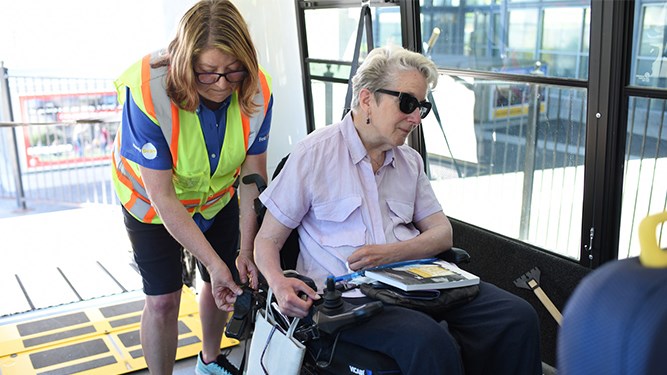Editor:
TransLink is once again proposing the same invasive and adversarial screening process they proposed in 2011. The proposal a decade ago was cancelled after the City of Vancouver Persons with Disabilities Advisory Committee and other groups objected to a process that denies service to vulnerable users to save on costs.
On June 8, Vancouver City Council will consider a motion to oppose this year’s version and we hope that it will be approved unanimously and backed by similar motions in municipalities across the region.
Instead of screening out HandyDART riders, TransLink should be helping seniors and people with disabilities overcome barriers to travel by expanding their voluntary travel training program. People with disabilities are the real experts, and should be hired to do this work. Instead of being denied service, people with disabilities (most live on very low incomes) need help to access expensive mobility equipment like mobility scooters and to learn how best to navigate our largely inaccessible transit system.
TransLink claims the conventional transit system is accessible, but ‘accessible’ bus stops that are not connected to sidewalks and SkyTrain stations without washrooms are examples of how this isn’t really true. We need increased HandyDART service and helpful support, not invasive processes to screen out the most vulnerable.
Beth McKellar, chairperson of the HandyDART Riders’ Alliance, Burnaby


